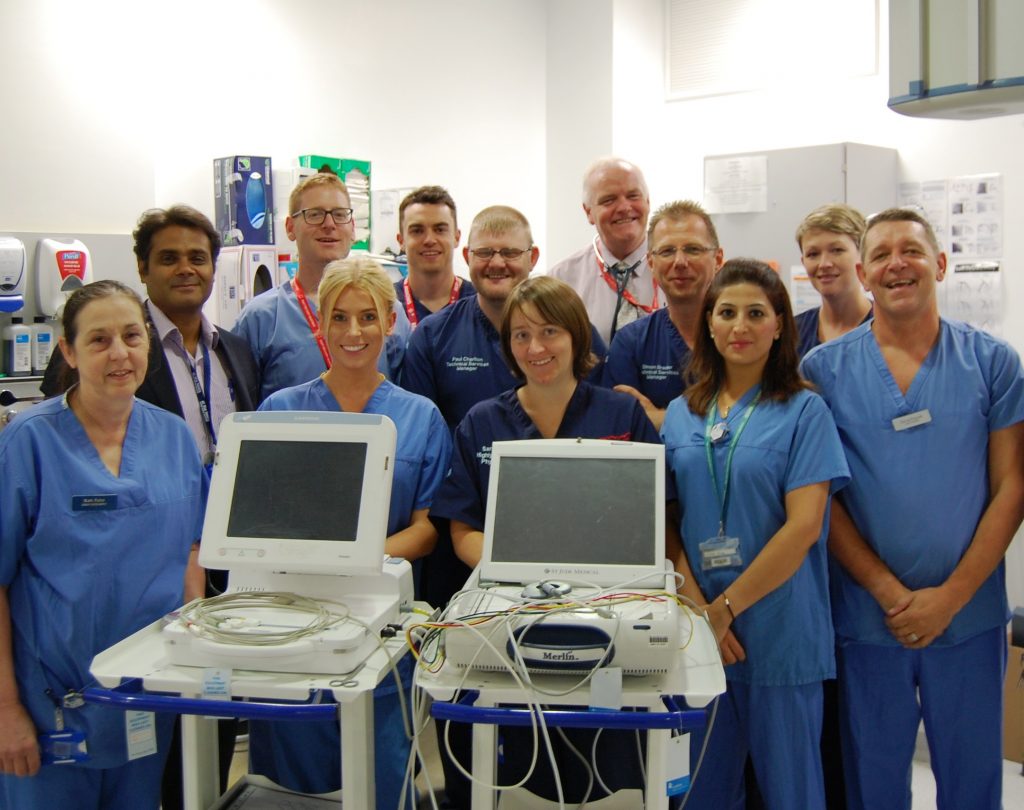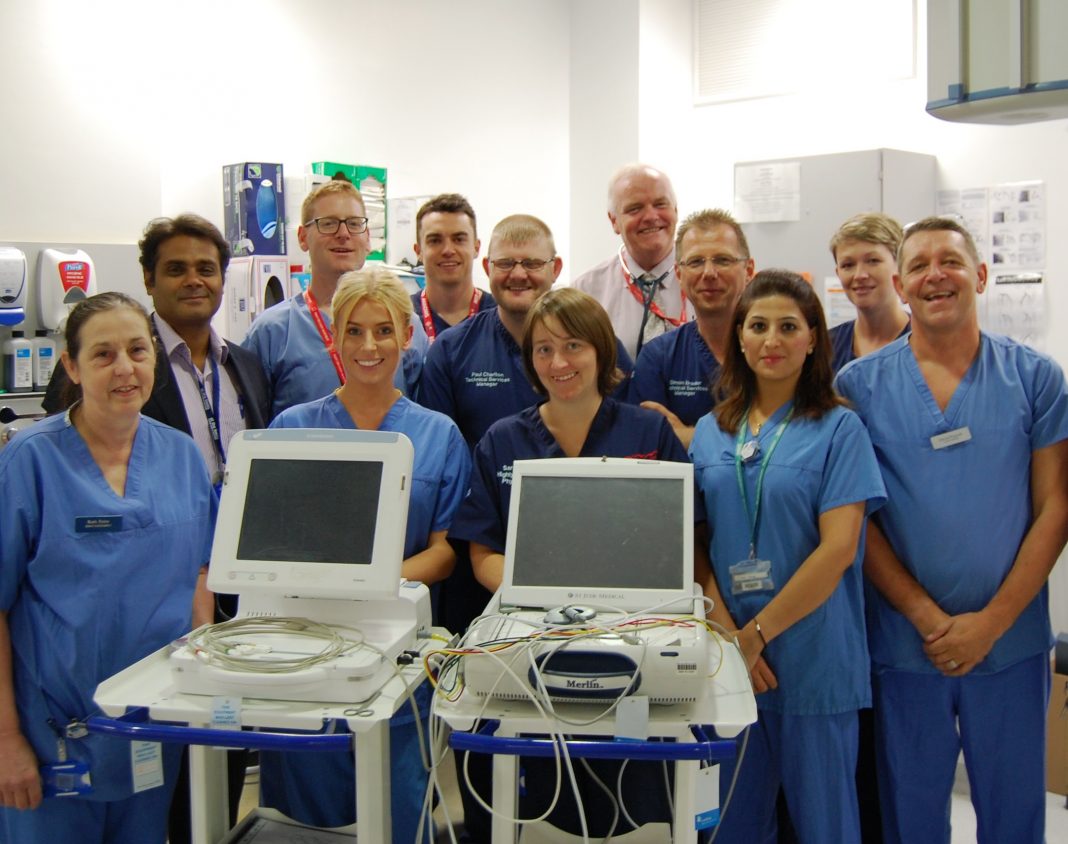Pioneering doctors at the Great Western Hospital have successfully implanted the UK’s first four lead pacemaker.
 The groundbreaking operation took place in November of last year and saw the heart failure patient become the first in the country to benefit from the state-of-the-art device.
The groundbreaking operation took place in November of last year and saw the heart failure patient become the first in the country to benefit from the state-of-the-art device.
Medics at the Swindon hospital will now monitor the patient’s recovery and rehabilitation as part of an international research project to assess the advantages of the new technology.
Pacemakers are small matchbox-sized devices which are implanted into the chest of a patient with an abnormal or slow heartbeat.
They work by sending electrical pulses to the heart to keep it beating at a normal, healthy rhythm.
Traditional pacemakers have three leads which are connected to the heart through blood vessels, however experts behind the new study believe the introduction of an additional lead may have added benefits to some patients with specific heart rhythms.
The new pacemaker was fitted by consultant cardiologists Dr Badrinathan Chandrasekaran and Dr Paul Foley with help from the team in the Wiltshire Cardiac Centre.
Dr Chandrasekaran said: “We have been fitting complex devices at GWH since 2011 but this specific procedure had never been done before in the UK.
“It was a great honour for myself and the team to be at the forefront of this exciting international research project and we were so pleased that this cutting-edge treatment was rolled out in Swindon before anywhere else.
“The operation itself went well and, although it’s early days, I’m happy to say the patient is already feeling much better.
“We’ll keep a close eye on his progress over the coming months, as we do with all pacemaker implants, but I’m hopeful that we will see some really promising results that will benefit patients for years to come.”
While new to the UK, the four-lead pacemaker was first trialled in September 2015 at Saint Joseph’s Hospital in Paris.
Since then, the team at the French hospital have performed the operation on more than 210 patients suffering from a form of heart failure.
Stefano Di Lullo, Business Unit President of LivaNova, the company behind the new device, said: “This landmark study has the potential to transform the standard of care for patients who do not respond to traditional pacemaker intervention.”
The international project is currently ongoing with the results expected to be published at a later date.
